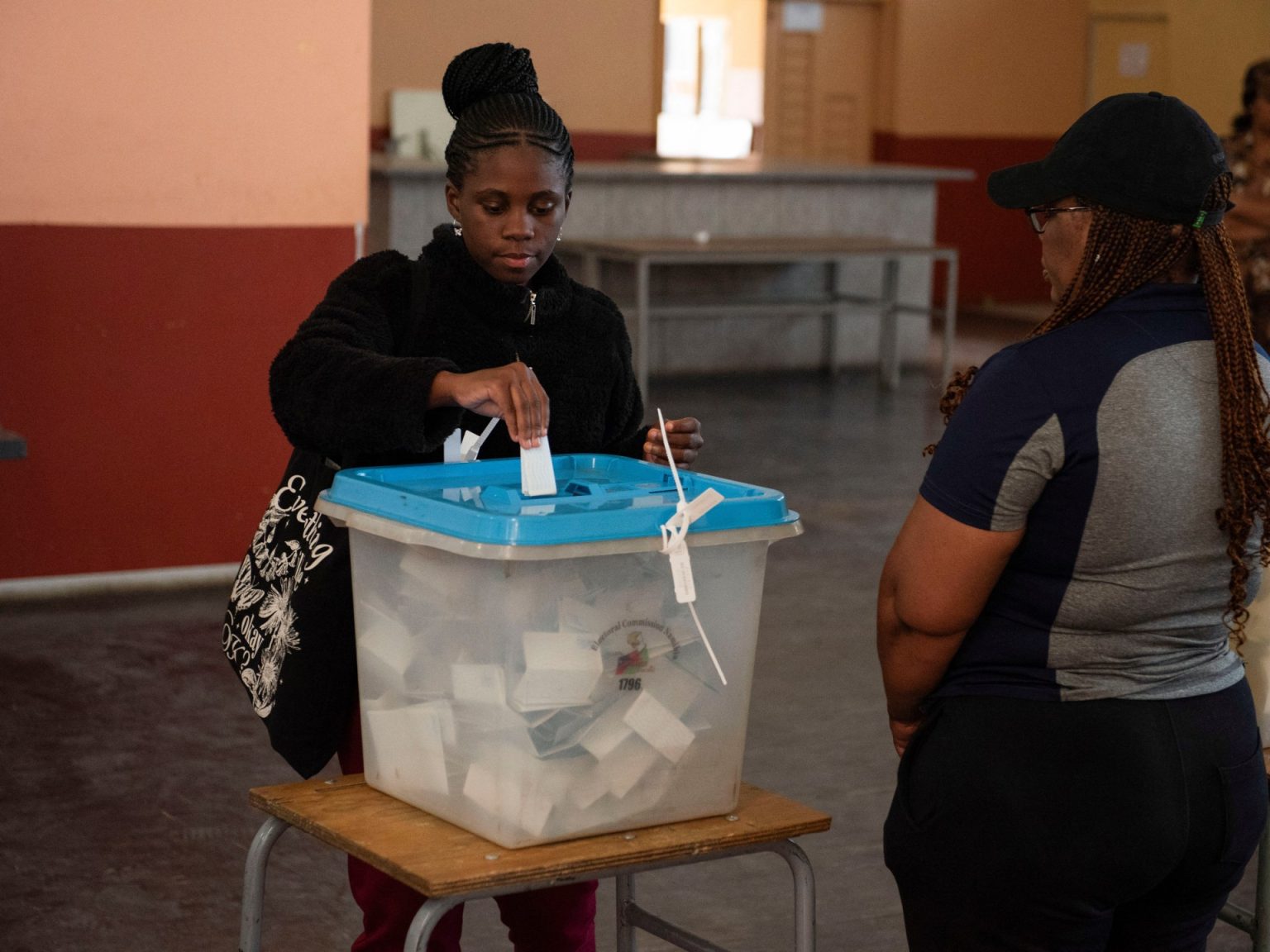As Namibia approaches a crucial moment in its political history, the government is grappling with significant tensions arising from the recently extended presidential and parliamentary elections. The Electoral Commission of Namibia (ECN) announced an extension of the polling period into the weekend after encountering “irregularities” that hampered the electoral process, including logistical failures central to the functioning of the polling stations. As voters faced extended queues and frustrations over shortages of ballot papers and malfunctioning electronic voting devices, the urgency of the situation became palpable. Voting has turned into a test of patience for many, amplifying concerns around the integrity of the electoral system in a country that has been historically dominated by the South West Africa People’s Organisation (Swapo).
The Independent Patriots for Change (IPC), which seeks to end Swapo’s 34-year dominance, has expressed its discontent regarding the election extension but remains committed to encouraging voter participation. IPC presidential candidate Panduleni Itula criticized the irregularities noted by the ECN, noting the profound dismay these issues have caused within the electorate. Nevertheless, Itula emphasized the importance of continuing the electoral process, urging voters to fulfill their civic duty despite the evident shortcomings in the system. He is competing against Swapo’s Netumbo Nandi-Ndaitwah, who stands to become the first female president of Namibia if she is victorious. This context frames a notable struggle between the old guard represented by Swapo and a burgeoning desire for change led by the IPC, positioning Nandi-Ndaitwah and Itula at the forefront of a charged electoral battle.
Amidst these rising tensions, there is increasing frustration among the younger population, which is increasingly vocal about their need for better opportunities and accountability from those in power. Namibia’s historical backdrop as a former German colony under South African control has influenced its socio-economic framework, where despite being classified as an upper-middle-income country by the World Bank, the nation suffers from stark inequality and unemployment, especially among the youth. This demographic has been particularly disenchanted with the politics of the past, raising questions about whether Swapo—a party that once held the mantle of liberation—can continue to enjoy the support of a new generation that dares to envision a different political landscape.
The significance of this election goes beyond merely choosing a leader; it represents a broader narrative of Namibia’s political evolution. Observers are drawing parallels to other Southern African nations that have seen once-dominant parties, which were heralded for their roles in liberation struggles, face rising discontent and rejection from the electorate. For example, the turmoil in Mozambique following allegations of vote rigging against the long-ruling Frelimo party underscores a regional pattern where the public’s patience with established parties is wearing thin. Such developments in neighboring countries serve as both a cautionary tale and a source of inspiration for the opposition in Namibia, heightening the stakes of a fundamentally flawed electoral process.
Furthermore, the reactions from both voters and opposition leaders underscore a volatile atmosphere where frustrations are mounting against the backdrop of an orchestrated electoral process that is seen as failing the citizens. Voters like Nangombe Shitaleni, who stood persistently in line with the hope of casting his ballot, reflect the struggles faced by many Namibians eager to exercise their democratic rights. This willingness to endure hardships in order to participate in determining the nation’s leadership showcases a populace that, despite growing disillusionment, remains hopeful for change. However, the irregularities and frustrations of the current electoral scenario might further alienate voters, potentially dampening turnout and impacting the IPC’s aspirations for change.
As Namibia navigates this critical juncture, the implications of the election extend to questions about the future of governance, national trust, and social progress. The outcome will either reinforce Swapo’s long-standing influence or signal a new epoch in the country’s political narrative ushered in by a more progressive and youthful leadership found in the IPC. Whichever path Namibia chooses could define its trajectory in addressing longstanding issues of inequality, unemployment, and disenfranchisement among its citizens. The need for meaningful political engagement and accountability has never been more pressing, as citizens reflect on their country’s past and envision a future that might finally align political leadership with the aspirations and needs of its population.

